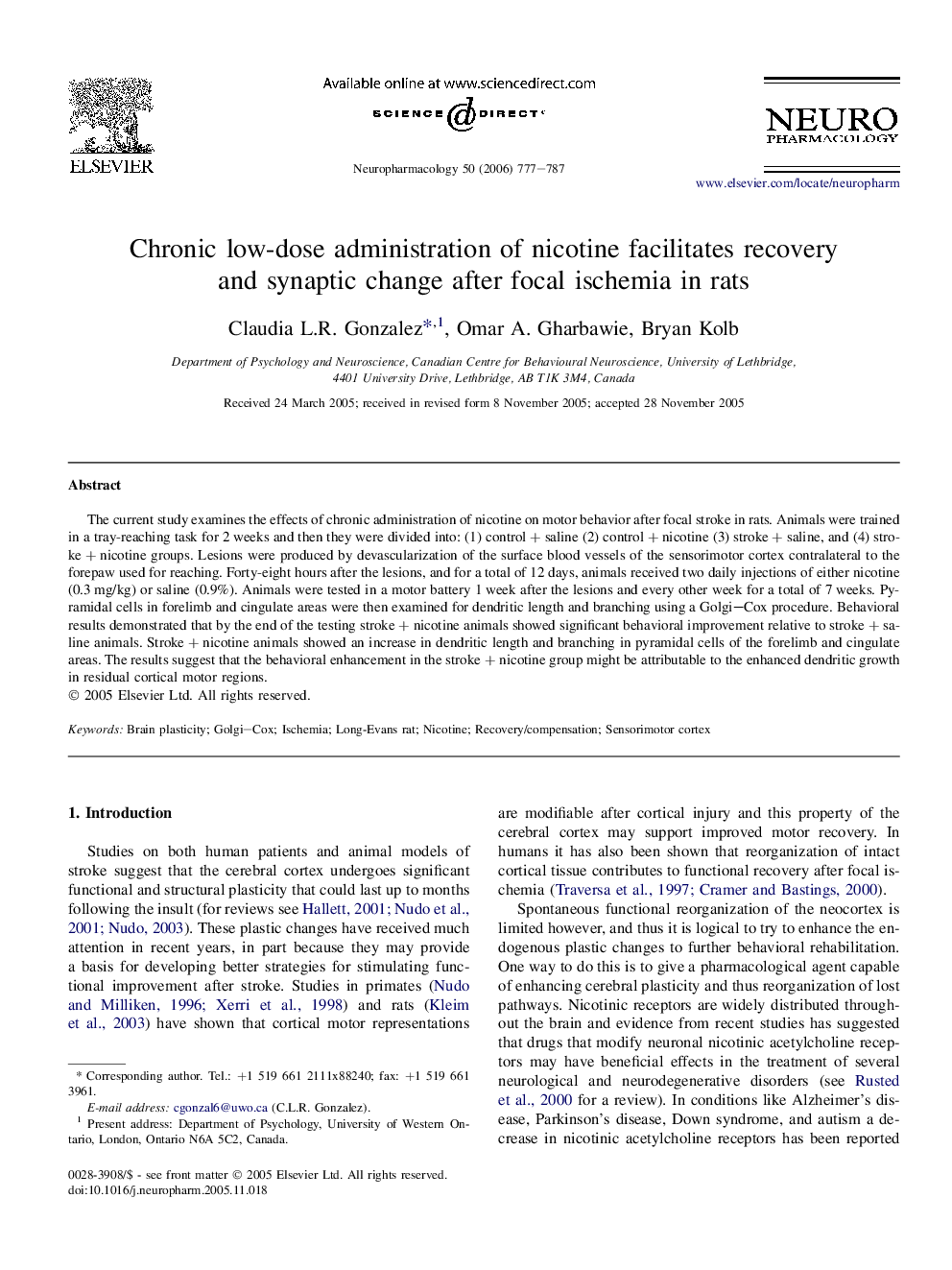| Article ID | Journal | Published Year | Pages | File Type |
|---|---|---|---|---|
| 2495400 | Neuropharmacology | 2006 | 11 Pages |
The current study examines the effects of chronic administration of nicotine on motor behavior after focal stroke in rats. Animals were trained in a tray-reaching task for 2 weeks and then they were divided into: (1) control + saline (2) control + nicotine (3) stroke + saline, and (4) stroke + nicotine groups. Lesions were produced by devascularization of the surface blood vessels of the sensorimotor cortex contralateral to the forepaw used for reaching. Forty-eight hours after the lesions, and for a total of 12 days, animals received two daily injections of either nicotine (0.3 mg/kg) or saline (0.9%). Animals were tested in a motor battery 1 week after the lesions and every other week for a total of 7 weeks. Pyramidal cells in forelimb and cingulate areas were then examined for dendritic length and branching using a Golgi–Cox procedure. Behavioral results demonstrated that by the end of the testing stroke + nicotine animals showed significant behavioral improvement relative to stroke + saline animals. Stroke + nicotine animals showed an increase in dendritic length and branching in pyramidal cells of the forelimb and cingulate areas. The results suggest that the behavioral enhancement in the stroke + nicotine group might be attributable to the enhanced dendritic growth in residual cortical motor regions.
